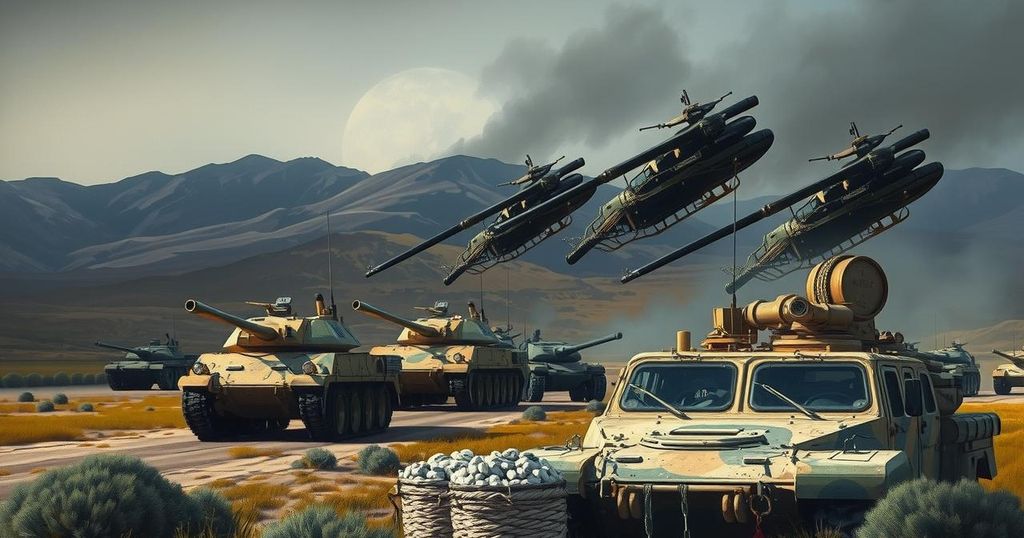NATO Adapts Strategies Amid Growing North Korea-Russia Military Ties
North Korea is escalating military cooperation with Russia by sending troops and military aid to the frontlines in Kursk. The U.S. responds with support for Ukraine, intensifying joint efforts with South Korea to counter North Korean tactics, particularly concerning war tunnels. NATO is similarly adapting strategies learned from the Ukraine conflict, enhancing defenses against the emerging threats posed by Russia and North Korea.
In a significant development, North Korea has increased its military cooperation with Russia by dispatching thousands of additional troops to the frontlines in Kursk amid heightened tensions related to the ongoing Ukraine conflict. This collaborative effort raises concerns within the United States, prompting intensified support for Ukraine to counteract North Korean strategies. Reports suggest that North Korea has deployed 3,000 reinforcements to Russia, although they had previously suffered considerable losses, with over 4,000 soldiers incapacitated from an initial force of 12,000.
Additionally, North Korea is augmenting military assistance to Russia, addressing shortcomings within the Russian defense industry that struggle with persistent losses. Recent Ukrainian intelligence has identified North Korean Koksan self-propelled guns being utilized in combat. Ukrainian forces engaged these systems effectively, utilizing HIMARS munitions and drones, successfully destroying several units. The proliferation of North Korean artillery has extended its reach, as observed in Crimea, reflecting a deepening dependence within Russian ranks.
The reciprocal relationship between Russia and North Korea was highlighted by a recent visit to Pyongyang by Sergei Shoigu, Secretary of the Russian Security Council, marking the second such visit in six months. This signifies an escalating level of military collaboration, which enables North Korea to gain vital combat experience, posing threats to South Korea amid ongoing regional tensions. Such dynamics are prompting the West, particularly the United States, to formulate strategic countermeasures.
In response, the U.S. military has reinforced its partnership with South Korea to develop tactics aimed at neutralizing North Korean operations, particularly the sophisticated use of war tunnels. These joint exercises focus on tactics involving drone reconnaissance and ground assaults, aimed at mitigating the rehearsal of North Korean tactics seen in Ukraine. This strategy seeks to undermine the North’s military potential as their innovations face enhanced scrutiny and countermeasures.
NATO is concurrently endeavoring to assimilate lessons from the conflict in Ukraine to bolster its defensive posture against potential threats from both Russia and North Korea. Initiatives such as the establishment of the Joint Analysis Training and Education Centre in Poland facilitate collaborative learning experiences between NATO and Ukrainian forces. The incorporation of these field-tested insights into NATO’s operational doctrine aims to fortify the alliance against emerging threats.
In conclusion, while North Korea’s military contributions offer temporary respite to Russia amidst its losses, they simultaneously spotlight the latter’s increasing need for external support and the limitations of its defense capabilities. The geopolitical response from NATO and the U.S. illustrates a concerted effort to deter potential aggression through enhanced military readiness and strategic adaptations to evolving warfare tactics. Consequently, North Korea is faced with the imperative to reassess whether deepening military alliances is strategically advantageous given the risks posed by Western initiatives to counter their military developments.
The evolving military relationship between North Korea and Russia, marked by troop deployments and arms exchanges, presents a new challenge for global security. U.S. and South Korean tactical responses, along with NATO’s learning initiatives from the Ukraine conflict, signify a robust effort to deter the threats posed by these nations. This dynamic compels North Korea to reevaluate the implications of its military collaborations in light of increasing Western countermeasures and the potential for diminished operational effectiveness.
Original Source: euromaidanpress.com




Post Comment